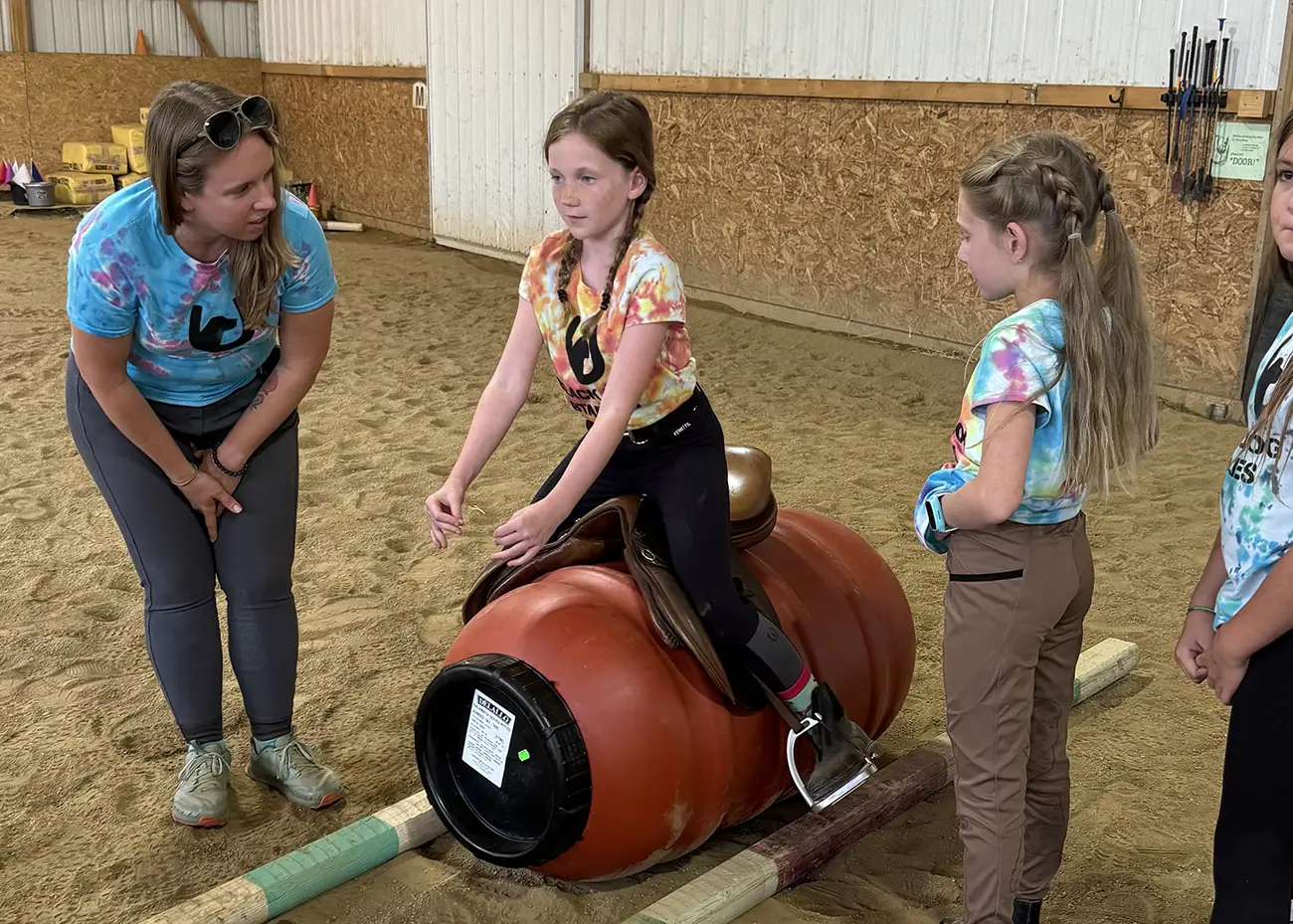Three years ago, our riding program switched to a semester-based format, and we haven’t looked back. The switch has resulted in greater financial security for the barn and instructors and a greater sense of commitment from our riders and families. We’ve changed very little of the new format since we put it into place in January 2022.
But we have struggled figuring out how to handle missed lessons. We wanted a make-up policy that was fair to our families, but that didn’t add extra stress or unpaid work time for our instructors.
What Wasn’t Working
Prior to the switch to a sessions format, we—like many programs—had a 24-hour cancellation policy. If a client cancelled a lesson more than 24 hours in advance, it was eligible for a make-up, which the instructor had to fit into her schedule, either during another cancellation or before or after her regular lessons. These make-ups were time-consuming to both schedule and teach, and if that empty lesson spot couldn’t be filled, then instructors were tied up for the duration of two lesson spots but only being paid for one.

And when lessons were cancelled inside that 24-hour window, we often had to chase down payments for those missed lessons. It was time-consuming and uncomfortable; despite the policies being in writing, we often felt like the bad guys.
When we switched to a semester- or sessions-based format, we went back and forth as to how—or whether—to offer make-ups.
ADVERTISEMENT
Our sessions are generally 10-12 weeks long, and we felt that one make-up lesson during that session (and two during the summer session to account for vacations) was fair. Three years later, we still feel this way, and I can’t remember an instance where parents have pushed back against this.
When we first went to a session format, we’d select a few days after the end of each session to offer make-ups, and we’d post a sign-up sheet with open lesson slots. But allowing people to sign up on their own didn’t enable us to balance beginner, intermediate and advanced lessons on a single day. If more beginners, for example, signed up on one day, then those beginner-specific horses carried a heavier load.
It also meant that the days were often very broken up—maybe one person signed up for a 10 a.m. lesson, then the next make-up wasn’t scheduled until 2 p.m. For instructors who live on property it may not be a big deal (I can run home and switch a load of laundry), but it’s a lot of wasted time for those who travel. And finally, if you’re teaching three days of make-up lessons, those are essentially unpaid work days added on to the end of the session. We ran make-ups like that for about a year, then decided there had to be a better way.
Enter The Unmounted Make-Up Lesson
Our program emphasizes horsemanship, and our students know that to progress up our levels, there are both mounted and unmounted skills that they have to learn.
We kept that in mind as we brainstormed make-up lesson options, and came up with this: unmounted, two-hour group lessons where students can practice the horsemanship skills that our program values.
We announced the change in one of our pre-session calendar/newsletters, and no one batted an eye. Toward the end of the session, we posted a sign-up sheet for three make-up slots offered over several days. If this worked, instead of taking upwards of 30 hours to offer each student a make-up ride, in just six hours we could offer everyone additional time at the barn to take the place of a missed lesson.
ADVERTISEMENT
Every student loves extra time at the barn, so the two-hour chunk of time is something they all look forward to. And because many of our regular lessons are privates or groups of two, the make-up sessions give our students a chance to hang out with a bunch of like-minded, horse-crazy kids—another plus.
This new format has been a huge hit. Every student loves extra time at the barn, so the two-hour chunk of time is something they all look forward to. And because many of our regular lessons are privates or groups of two, the make-up sessions give our students a chance to hang out with a bunch of like-minded, horse-crazy kids—another plus.
The level(s) of the students in each make-up group helps determine the skills we’ll practice during that time. At the last make-up session I taught, each rider picked a skill from their current level that they wanted to practice, and then the rider(s) at the next level up taught that skill to the lower-level rider. Watching my more advanced students teach something to our newer riders made me so proud!
We’ve been offering make-ups in this way all year, and they’ve become days in the calendar year that our riding students—and our instructors—look forward to for camaraderie, education and fun.
Sarah K. Susa is the owner of Black Dog Stables just north of Pittsburgh, where she resides with her husband and young son. She has a B.A. in English and Creative Writing from Allegheny College and an M.Ed. from The University of Pennsylvania. She teaches high school English full-time, teaches riding lessons and facilitates educational programs at Black Dog Stables, and has no idea what you mean by the concept of free time.














